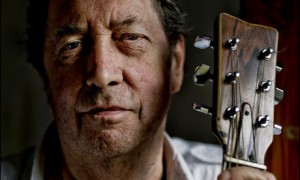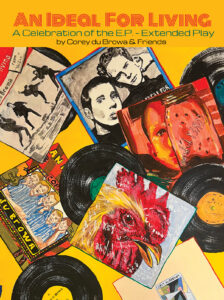
But for the musicians who accept this risk, the rewards are abundantly clear to them. It’s the opportunity to explore sounds and really listen to the music as it’s happening. It’s the reward of understanding the complex emotions of harmonic structures, and hearing the sounds of your own instrument in greater detail from the buzz of steel strings and your fingertips on them, to the unique tonal vibrations of wood and the experience of natural reverberations.
It’s a time to think about the next line of a lyric; to take it’s meaning into you and echo in breath what the mind ponders subconsciously. It’s the simultaneously coupling of thoughts and emotions as a single expression. This is the essence of a growing movement in music, especially for younger artists who are maturing and desiring more depth in their work. It’s not a new idea, but one that is gaining momentum.
For some musicians, it’s a call to craft downtempo songs and carefully orchestrate the instrumentation. For other musicians, it’s call to return to folk, blues and other traditional root forms. I like to think of it as “slow music” even if the tempo dictates otherwise. Guitarist like Thurston Moore (Sonic Youth) and Johnny Marr (The Smiths) are taking the time to slow down and realize a powerful body of musical exploration.
For Thurston Moore, who has been inspired by brilliant risk takers like Pat Metheny and Derek Bailey to jump into noise-based musical explorations, the sense of musical freedom in his work is more palpable. Even as Moore moves into more melodic realms with his most recent work, he takes risks that his audience won’t follow. His most recent stretch pushes him into the spotlight as a composer, but in choosing a more melodic and noise-free expression, it places an extra demand on his fans to shut it and listen intently.
Moore’s latest work, Demolished Thoughts is pure brilliance. Produced and inspired by Beck, Moore’s work here is lovely. For his recent performance on The Dave Letterman Show, Moore plays “Benediction,” a composition that carries vocal overtones that are distinctly evocative of Lou Reed. Listen to the song’s construction as Moore carries you aloft slowly, sweetly and deliberately. The guitar driving gently on, punctuated by chord shifts and sympathetic plucking that mixes well with the harp, violin and lead guitar. The song strains for higher ground only to realise that it’s never really left the ground.
http://www.youtube.com/watch?v=2XrR4Y1CmAo
For Johnny Marr, one of his biggest inspirations has been Bert Jansch, who has gone largely unnoticed as a composer and performer but has influenced rock guitarist from Jimmy Page to Johnny Marr to Neil Young and Eric Clapton. Think back to Page’s work on “Black Mountain Side” — that’s Jansch’s arrangement to the note.
For those unfamiliar with that name, Jansch is the Scottish folk guitar legend and co-founder of the folk rock band, Pentangle. Jansch’s playing is natural, occasionally rough, typically spontaneous, and usually different each time he plays a song. His finger picking style, long been prized and copied by others, stresses the interplay within chords as it draws on liberal infusions from jazz, blues, Scottish folk tradition and other traditional forms. His compositions and vocals, like his playing style, carry a beautiful authenticity that are often slow and deliberate.
Listening to these two artists together, it’s easy to understand Marr’s fascination with Jansch. In spite of the slow tempo, Jansch forcefully plucks and picks his way through chords. Marr’s style of playing sometimes overlaps Jansch’s as each shares aggressive punctuated deliveries, but Marr listens intently to the elder Jansch for cues on melodic and harmonic layers. The results here are so sad and beautiful. Listen to Jansch and Marr play “It Don’t Bother Me.”
For the younger musicians like Marr and Moore, slow music is all about time and having the patience to let it and your songs unfold of their own accord and pass at a thoughtful pace. Unfortunately, that’s a luxury no longer available to Jansch, who sadly passed away this past week.
Much will be written about Bert, his problems with the bottle, but until you listen slowly and give this its due, you’re likely not to appreciate how great he was. Even sadder, Jansch leaves us just as the musicians gain a greater appreciation for slower, more natural expressions of their music. He leaves just as it this movement is gaining greater traction with younger audiences. If you didn’t know Jansch, now is a perfect time to seek out his recordings and discover the essence of what I call “slow music” in a modern age.
Farewell, Bert.
Bert Jansch, “Blackwater Side”


